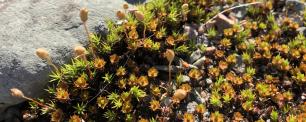BIPOLAR
Cryptogam biodiversity dynamics under climate change in the Arctic and Antarctic poles
The BIPOLAR project aims to study the impact of climate change on cryptogams (bryophytes and lichens) of polar regions, which are essential for polar ecosystems but poorly studied. Through an interdisciplinary approach, combining historical and current data, fieldwork and statistical models, BIPOLAR will quantify the climatic niches of these species to understand their adaptive capacity.
Earth’s polar regions are warming at unprecedented rates. Antarctica is experiencing rapid regional warming, and the Arctic has warmed up to four times the global average. In response, vascular plants have experienced shifts in species’ abundance and distribution.
Polar regions host large richness of cryptogam species (bryophytes and lichens), which are essential ecosystem regulators that contribute to nutrient cycling, soil moisture and energy balance. Despite these crucial roles and expectations that cryptogams can be seriously affected by climate change, taxonomical challenges hinder our understanding of their current trends.
BIPOLAR will tackle this knowledge gap by quantifying polar cryptogams’ climatic niches to understand their potential for climate change adaptation. BIPOLAR is an interdisciplinary project that will provide a window into the future of Antarctic cryptogams by using the Arctic as a sentinel region via bipolar cryptogam species (i.e. present at the two poles).
BIPOLAR will combine a variety of methods and data (i.e. palaeoecology, open-access datasets, fieldwork and Bayesian statistics), and employ historical and current data to inform future projections. This research will provide a foundation for conservation as these regions become progressively more ice- and snow-free, while strengthening currently fragmented Arctic and Antarctic research links and bringing together the polar research community.





